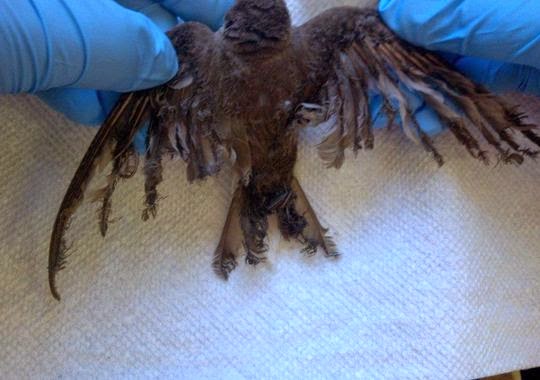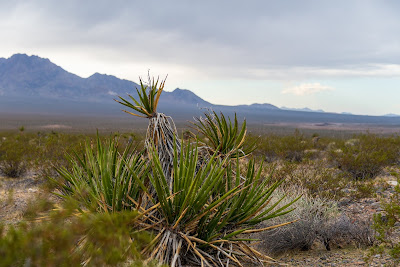Overriding Considerations and the War on Carbon
The New York Times recently published an Op-Ed by author Rebecca Solnit questioning our concern for the fate of wildlife as we rapidly expand renewable energy generation. Ms. Solnit's point seems to be that the climate catastrophe poses far too great of a threat to be concerned for the death of wildlife at solar and wind energy projects. I think it is very timely that her op-ed was published at the same time that our country is left trying to explain why the torture of a few was necessary for the defense of many. When we are left questioning why we should compromise on our values in the pursuit of victory in war.
I would like to argue that Ms. Solnit is missing the point, and that every life has value, including every single bird and insect burned at BrightSource Energy's Ivanpah Solar project, or any burrowing owl that loses its habitat to the effects of climate change. But she raises a compelling point - climate will bring destruction on a mass scale, and terrorize ecosystems and human communities alike. As we continue to burn coal and natural gas, human towns will be washed away by rising seas, and we will witness the disappearance of shore bird nests, the hunting grounds of puffins, the homes of polar bears, and stands of Joshua trees.
Climate change is indeed a menace and I agree with Ms. Solnit that it deserves the effort of every individual to address. However, climate change is the consequence of our excesses as a human society - the rich flying private jets from coast to coast, and the poor watching television after a long day's work. We are all using energy - to varying degrees - and it is incumbent that we all pay the price and voluntarily change our habits. It is foolish and abhorrent to post photos of burned birds - as the New York Times did - and broadcast a morally blind rhetoric that wildlife needs to "suck it up" and take one for the team in our war on carbon; a war in which the enemy and the victor are the same - human beings.
I do not expect that every watt of renewable energy will come from rooftops - primarily because I don't expect that a system built upon the consolidation of wealth among the few will let go of the golden egg of our centralized power system so easily. But I do think it is our responsibility to scrutinize our impacts - whether they are the result of fossil fuels or renewable energy - and strive to reduce our demands on this planet and our fellow species.
 |
| A swallow found dead at BrightSource Energy's Ivanpah Solar power project, almost certainly burned by the "solar flux" - superheated air - generated by the project's thousands of giant mirrors. |
Climate change is indeed a menace and I agree with Ms. Solnit that it deserves the effort of every individual to address. However, climate change is the consequence of our excesses as a human society - the rich flying private jets from coast to coast, and the poor watching television after a long day's work. We are all using energy - to varying degrees - and it is incumbent that we all pay the price and voluntarily change our habits. It is foolish and abhorrent to post photos of burned birds - as the New York Times did - and broadcast a morally blind rhetoric that wildlife needs to "suck it up" and take one for the team in our war on carbon; a war in which the enemy and the victor are the same - human beings.
I do not expect that every watt of renewable energy will come from rooftops - primarily because I don't expect that a system built upon the consolidation of wealth among the few will let go of the golden egg of our centralized power system so easily. But I do think it is our responsibility to scrutinize our impacts - whether they are the result of fossil fuels or renewable energy - and strive to reduce our demands on this planet and our fellow species.




Indeed. Have you shared this with NYT or Ms Solnit?
ReplyDeletePaul Fretheim Ms. Solnit should come back to this issue when all rooftops and other already disturbed areas are covered with PV arrays. Fill those first and leave the wild desert wild. It makes better financial sense too.
ReplyDelete